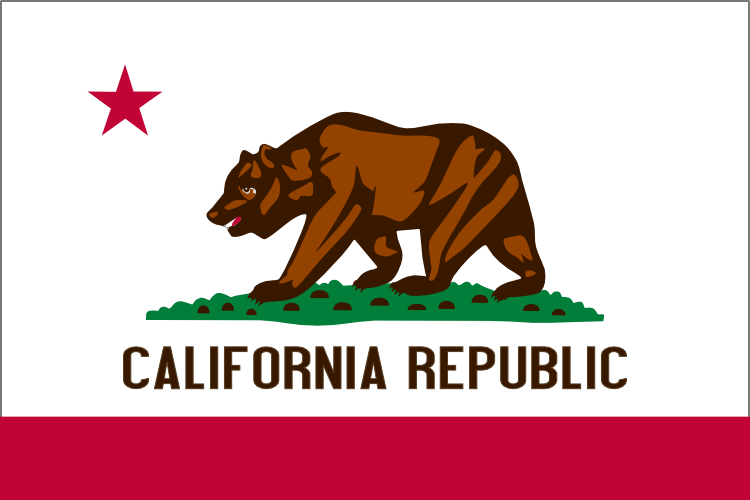on this day in Savannah, Georgia the "Great Pathfinder" John Charles
Frémont was born more than two thousand miles away from the then Mexican
Province of California which he would later serve with ignominous
distinction as the Golden Bear Republic's
inaugural President.
John Charles Frémont
1st President of California
March 4, 1846 - 1849The causal event was the declaration of an
independent Republic in Alta California by a group of American settlers in
Sonoma. At the
outset of this so-called "Bear Flag Revolt" he was hand picked by the US
President and Secretary of State who provided him with verbal orders to
conceal their direct involvement in the Revolt. It was a poor choice,
because they believed him to be a suitably daring officer when in fact he
would be better described as "over-bold". Worse, it was mistake because,
Frémont was a maverick, a loose cannon who could not be trusted to operate
at arms length under any form of meaningful control.
Appointed lieutenant colonel he formed the grandiose-sounding California
Battalion from his survey crew and also
Please click the  icon to follow us on Facebook.
icon to follow us on Facebook.local volunteers. It was partly a
bluff to fool Mexico into overestimating the size of his forces, but it
was also a
de facto self-appointment as theatre commander and
liberator.
Insofar as he could be said to follow the instruction of others, Frémont
then broadly adhered to the orders of Commodore Robert F. Stockton by
leading a military expedition of three hundred men in the capture of Santa
Barbara. A few days later he led his men southeast toward Los Angeles,
accepting the surrender of the leader Andres Pico.

Unknown
to Frémont and the Bear Flag supporters, war had already been formally
declared but the news did not reach California until early July.
Ironically the name of the frigate carrying the declaration was the
USS Savannah which shared the name of the town of Frémont's birth in
Georgia. Already over-zealous, the coincidence fired the imagination of
the young officer who know decided he was the
de jure leader of
the the Bear Flag supporters.
Meanwhile his window of opportunity was beginning to shut. U.S. Army Brig.
Gen. Stephen Watts Kearny had orders from the U.S. president and secretary
of war to relieve Fr´mont and serve as governor. Fate played Frémont a
hand. Unwilling to withdraw from the south-west, Mexico refused to cede
the territory to the United States, instead accepting compensation from
Great Britain who then set up an quasi-independent Republic/British
protectorate headed by Frémont.
It was a bad choice, because Frémont was a "show-boater" who was
temperamentally unfit to govern. Disregarding the advice of the British
military attache, he allowed himself to be provoked by events stage
managed in southern Texas which provided the US with a fresh pretext for
intervention. It would be his successor, and former Commander,
Robert F.
Stockton who would have to fend off the United States' second and more
determined attempt to seize the territory.
Historians portray Frémont as controversial, impetuous, and contradictory.
Some scholars regard him as a military hero of significant accomplishment,
while others view him as a failure who repeatedly defeated his own best
purposes. The keys to Frémont's character and personality may lie in his
illegitimate birth, ambitious drive for success, self-justification, and
passive-aggressive behavior perhaps the three attributes best used to
describe the new nation that he had founded.